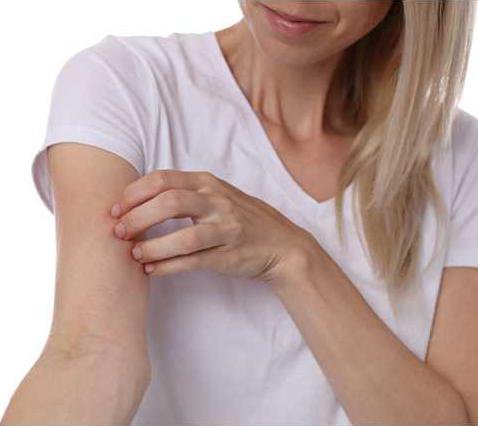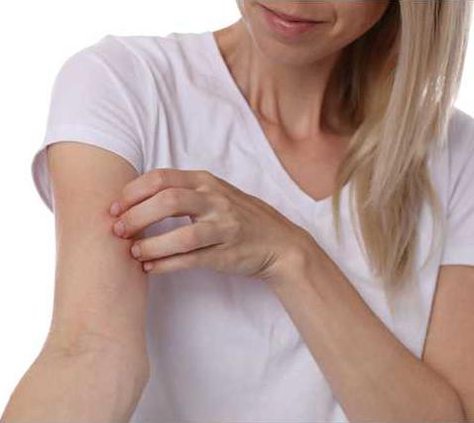It seems that almost anyone you talk to nowadays has a food allergy or knows someone who does. For some, it's more of a sensitivity, while for others, it can be life-threatening.
Food allergies
People can be allergic to fruits and vegetables, grains, various nuts, milk, eggs, and/or soy. Places like schools and restaurants are especially dangerous places for those with life-threatening allergies particularly if the exposure can occur through airborne particles.
The Centers for Disease Control and Prevention states that "Food allergies are a growing food safety and public health concern that affect an estimated 4 percent 6 percent of children in the United States. There is no cure for food allergies and reactions can be life threatening." Avoiding offending foods is the only way to make sure you don't have an allergic reaction, however it isn't always easy to completely avoid exposure or to find pre-packaged foods that don't contain certain allergens.
Some people can manage their allergies with shots or daily medicines, but that's not the case for everyone ... but according to a new study, you may be able to to outgrow your allergy.
A new study
Some allergies can come and go, and others present during childhood can be outgrown. A new study looked into how effective a test called a "food challenge" is "to determine whether a person can tolerate a food they once reacted to," stated WKMS.
In one instance, a fifth grade girl, Jula Cieciuch, went to her allergist at National Jewish Health Center where they repeated the standard allergy blood tests, which showed she may have outgrown her egg allergy. "The blood test measures the levels of a certain type of antibody, immunoglobulin E (IgE). The higher the level, the more likely a person is to have an allergic reaction. Jula's blood revealed a drop in antibody count," stated WKMS.
To confirm the results (under close medical supervision) Jula had to take the food challenge test actually eating the foods she's been allergic to. At first, the patient consumes a crumb-sized piece, then a larger amount, until you've eaten the entire item, which for Jula was a whole egg. If you have no reaction after eating the whole food item, you pass the test.
Results
Researchers studied 6,300 cases performed on adults and children who were thought to have outgrown an allergy. Of those, 14 percent had mild to moderate reactions and only two percent had more serious reactions requiring epinephrine.
But the majority of patients had no allergic reaction at all. That means that foods these patients were once allergic to, are now tolerated.
If your child has a food allergy, or if you had one as a child, you may want to be retested to see if the allergy is still present. If the blood test doesn't show a reaction, talk to your doctor about doing the food challenge under medical supervision. Don't try this on your own as severe reactions may occur in some cases.
Do you or your children suffer from food allergies? Have any of those allergies been outgrown? Would you consider doing the food challenge with your doctor's help to see if you're still allergic to certain foods?
Food allergies
People can be allergic to fruits and vegetables, grains, various nuts, milk, eggs, and/or soy. Places like schools and restaurants are especially dangerous places for those with life-threatening allergies particularly if the exposure can occur through airborne particles.
The Centers for Disease Control and Prevention states that "Food allergies are a growing food safety and public health concern that affect an estimated 4 percent 6 percent of children in the United States. There is no cure for food allergies and reactions can be life threatening." Avoiding offending foods is the only way to make sure you don't have an allergic reaction, however it isn't always easy to completely avoid exposure or to find pre-packaged foods that don't contain certain allergens.
Some people can manage their allergies with shots or daily medicines, but that's not the case for everyone ... but according to a new study, you may be able to to outgrow your allergy.
A new study
Some allergies can come and go, and others present during childhood can be outgrown. A new study looked into how effective a test called a "food challenge" is "to determine whether a person can tolerate a food they once reacted to," stated WKMS.
In one instance, a fifth grade girl, Jula Cieciuch, went to her allergist at National Jewish Health Center where they repeated the standard allergy blood tests, which showed she may have outgrown her egg allergy. "The blood test measures the levels of a certain type of antibody, immunoglobulin E (IgE). The higher the level, the more likely a person is to have an allergic reaction. Jula's blood revealed a drop in antibody count," stated WKMS.
To confirm the results (under close medical supervision) Jula had to take the food challenge test actually eating the foods she's been allergic to. At first, the patient consumes a crumb-sized piece, then a larger amount, until you've eaten the entire item, which for Jula was a whole egg. If you have no reaction after eating the whole food item, you pass the test.
Results
Researchers studied 6,300 cases performed on adults and children who were thought to have outgrown an allergy. Of those, 14 percent had mild to moderate reactions and only two percent had more serious reactions requiring epinephrine.
But the majority of patients had no allergic reaction at all. That means that foods these patients were once allergic to, are now tolerated.
If your child has a food allergy, or if you had one as a child, you may want to be retested to see if the allergy is still present. If the blood test doesn't show a reaction, talk to your doctor about doing the food challenge under medical supervision. Don't try this on your own as severe reactions may occur in some cases.
Do you or your children suffer from food allergies? Have any of those allergies been outgrown? Would you consider doing the food challenge with your doctor's help to see if you're still allergic to certain foods?








